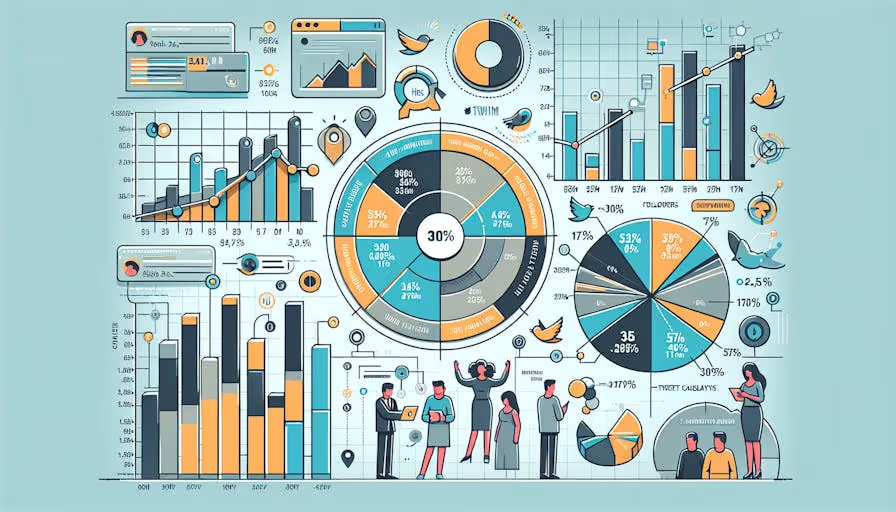How Many Friends Should You Have And Why? Friendship Statistics
There’s no “right” number of friends you should have, but new friendship statistics shows that most people have between 3 and 5 close friends.

How Many Friends Do You Need?
If you're looking for friendship statistics, you're in the right place.
There’s no “right” number of friends you should have, but research says most people have between 3 and 5 close friends.
Friends are an essential part of our lives. They provide us with emotional support, companionship, and someone to share our experiences with. But how many friends do we actually need? Is there a magic number that we should aim for? Let's explore this topic in more detail.
What Percentage of Friendships Last?
According to new research, we make just 29 real friends in our lifetime and only 6 of them last the distance. A study, which charted the social lives of 2,000 people, showed that we lose touch with almost 50% of the friends that we make.
How Long Do Friendships Last Statistically?
One poll found that the average friendship lasts for 17 years, however, 17% of survey responders said they've had the same best friend for over 30 years!
Statistics On Friendships In High School
- 98% of teens say they have one or more close friends.
- 78% say they have between 1 and 5 close friends.
- 20% have 6 or more close friends.
- Only 2% of teens say they do not have anyone they consider a close friend.
How Long Does The Average Female Friendship Last?
Recent research actually tells us that the average female friendship lasts 16 years, which is 6 years longer than the average romantic relationship.
How Many Friends Should I Have?
How many real friends a person has varies a lot, and it usually changes through the course of your life.
According to a 2021 survey data, the average person in America has between 3 and 5 close friends. According to this survey:
- 49% report having 3 or fewer close friends
- 36% report having between 4 and 9 close friends
- 13% say they have 10 or more close friends
- 12% say they have no close friends
The Dunbar Number
Anthropologist Robin Dunbar proposed a theory that humans can only maintain a limited number of social relationships. This number is known as the Dunbar number, and it is estimated to be around 150.
According to Dunbar, this number includes all types of relationships, from acquaintances to close friends and family members.
However, Dunbar also suggested that we have smaller circles of relationships within this larger group.
For example, we may have a core group of around five close friends, followed by a slightly larger group of around 15 close friends, and so on.
Quality Over Quantity
While the Dunbar number can give us a rough idea of how many friends we can maintain, it's important to remember that quality is more important than quantity. Having a few close friends who we can rely on and trust is much more valuable than having a large group of acquaintances.
In fact, studies have shown that having a strong social support network can have a positive impact on our mental health and well-being. So, instead of focusing on how many friends we have, we should focus on nurturing and maintaining the relationships that are most important to us.
The Benefits of Different Types of Friends
It's also worth noting that different types of friends can provide us with different benefits.
For example, we may have friends who we enjoy socializing with, but who we wouldn't necessarily confide in about personal issues. On the other hand, we may have friends who we turn to for emotional support and advice.
Having a variety of different types of friends can be beneficial, as it allows us to meet different needs and fulfill different roles in our lives. However, it's important to remember that not all friends are created equal, and we should prioritize the relationships that are most important to us.
How Many Friends Do People Have?
While the Dunbar number gives us an idea of how many social relationships humans are capable of maintaining, it's also interesting to look at how many friends people actually have on average. According to a 2021 survey data, the average person in America has between 3 and 5 close friends.
It's worth noting that these numbers are just averages and don't necessarily reflect what is most important or beneficial for individuals when it comes to friendships. As mentioned before, quality over quantity is crucial when it comes to building and maintaining meaningful relationships.
Why We Need Friends
Friends play a crucial role in our lives, providing us with a sense of belonging and connection.
They can help us navigate difficult times, provide emotional support, and offer different perspectives on life's challenges. Having close friends has been linked to increased happiness, reduced stress levels, and even improved physical health.
In fact, studies have found that people who have strong social connections tend to live longer than those who don't.
This is thought to be because having friends can help reduce the negative impact of stress on the body.
Furthermore, friendships can also help us develop important skills such as empathy, communication, and conflict resolution.
By learning how to navigate different personalities and resolve conflicts within our social circles, we gain valuable experience that we can apply in other areas of our lives.
Overall, while there may not be a magic number when it comes to how many friends we need, it's clear that having strong social connections is important for our overall well-being. So if you're feeling lonely or isolated, it might be time to reach out and invest in building meaningful relationships with others.
Conclusion
In conclusion, there is no magic number when it comes to how many friends we need. The Dunbar number can give us a rough estimate of how many relationships we can maintain, but quality is more important than quantity.
We should focus on nurturing and maintaining the relationships that are most important to us, and remember that different types of friends can provide us with different benefits. Ultimately, the number of friends we have is less important than the quality of those relationships.
Recent News
Related articles
.avif)
100+ YouTube Statistics, Facts & Demographics
In 2023, YouTube has over 2.5 billion monthly active users.

39 Teacher Statistics And Demographics
Find the most up-to-date teacher demographics and statistics that'll surprise you.

Twitter Statistics for Social Media Enthusiasts [2024]
Explore compelling twitter statistics, user demographics, content engagement, and future predictions.
.avif)
89 TikTok Statistics, Facts & User Demographics
New TikTok statistics show that TikTok has quickly become one of the most popular social media platforms, with users spending an average of 52 minutes per day scrolling through videos.

Key Tinder Statistics You Need to Know
Dive into the world of Tinder statistics - revealing insights on user demographics, engagement, and global trends.
.avif)
49 Telehealth Statistics & Telemedicine Trends
Telehealth statistics show that the use of virtual care is 38 times higher than before the COVID-19 pandemic.

Teacher Salary By State: Highest-Paid Teachers By State
Today we'll breakdown a teacher's salary by state, as well as the highest-paid teachers by state.

121 Social Media Addiction Statistics Worldwide
Did you know that around 70% of teens and young adults in the US have a social media addiction?

57 Scholarship Statistics, Facts & Demographics
Did you know over 1.7 million scholarships are awarded annually? Keep reading to find more scholarship statistics.

Average Screen Time Statistics & Facts (Usage)
Did you know people spend 6 hours 58 minutes on screens everyday? Find more screen time statistics below.

59 Physical Therapy Statistics, Facts & Demographics
There are 578,565 people employed in the physical therapy industry in the US as of 2022. Find more physical therapy statistics and facts below.

Spotify Statistics: 79+ Intriguing Consumption Statistics in Music
Dive into the evolution of music with intriguing Spotify statistics; from user engagement to financial performance.

